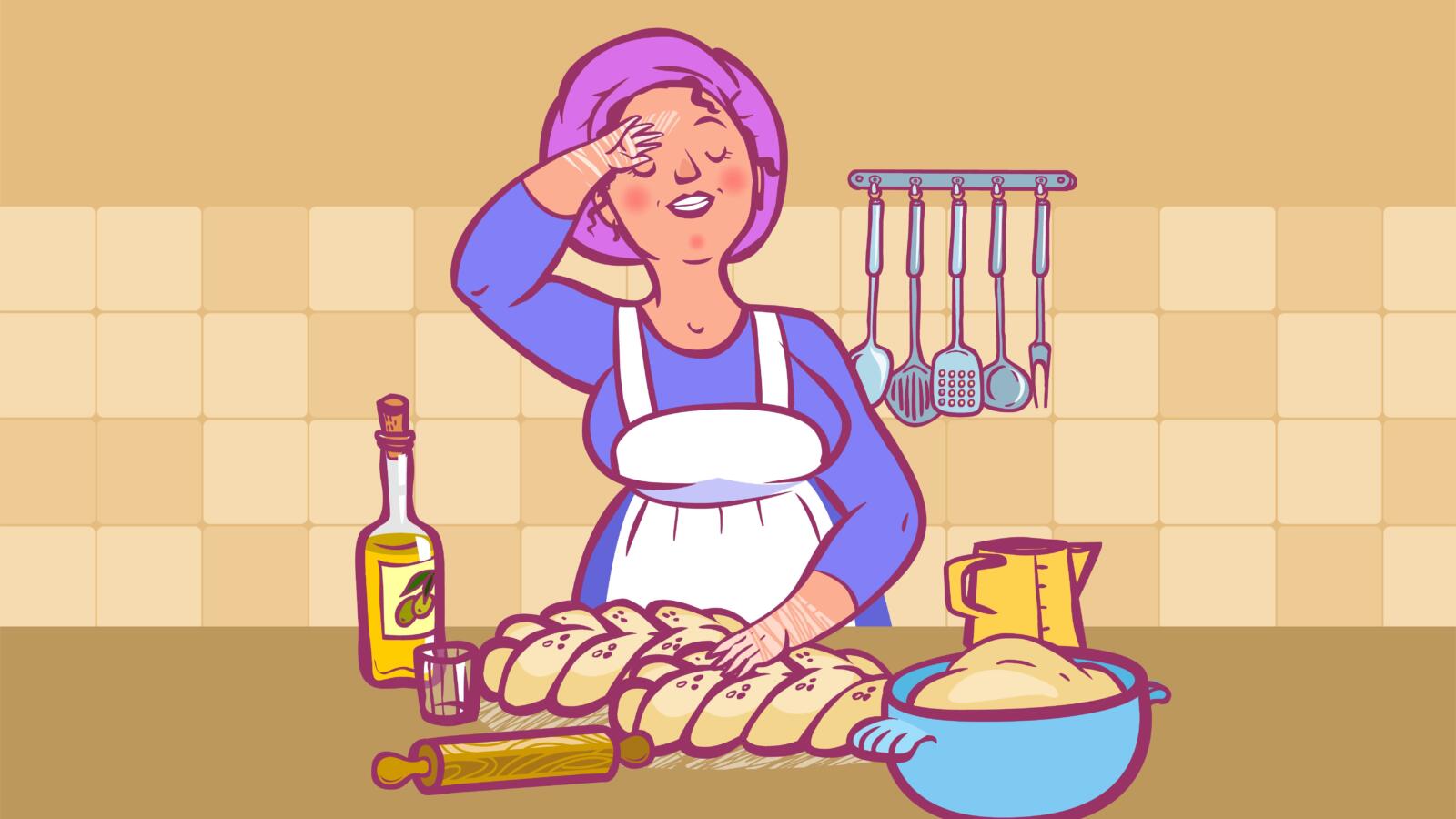The Yiddish word balabusta (also spelled baleboste) refers to a Jewish woman who is a capable, competent mistress of her home. A true balabusta is not just a homemaker — she is a figure of strength and resourcefulness, deeply embedded in Jewish tradition and identity.
The word balabusta is derived from the Hebrew words ba’al (owner or master) and bayit (house), but it is in fact a Yiddish word. Literally, a balabusta is the “mistress of the house” — the home manager. The masculine form is balabus (in Hebrew, ba’al ha-bayit) and it refers to the male head of the household. But the feminine balabusta carries more complex resonance, implying reserves of strength and upstanding character, as well as impressive stamina and efficiency.
22 more Yiddish words you should know.
With your help, My Jewish Learning can provide endless opportunities for learning, connection and discovery.
In consonance with the centuries in which the term took hold, a balabusta is a woman who efficiently performs domestic labors, manages the household finances, rears the children and makes the family’s religious life beautiful by cooking Shabbat and holiday meals. She is also a generous hostess and charitable to the poor. She is someone who exemplifies the characteristics of the eshet hayil, the “woman of valor,” described in Proverbs 31, which is traditionally chanted by husbands in honor of their wives at Shabbat dinner. Being a balabusta requires fortitude to uphold the physical and cultural infrastructure of Jewish life in the home. The title is considered a high compliment.
In modern usage, the word balabusta can have both positive and critical undertones, depending on context. On the one hand, it can be an affectionate compliment: “She’s such a balabusta!” might mean someone hosts beautifully, keeps an immaculate home, or cooks up a storm for guests. On the other hand, it can imply someone who is overly controlling and narrowly focused on domestic life to the exclusion of other pursuits. This change in meaning coincided with a cultural shift in the 20th century, which saw a Hollywood trope of men complaining of wives who were “ballbusters” — an English term that, despite sounding similar, has no etymological relation to balabusta.
Feminist critiques have also wrestled with the balabusta ideal, recognizing how it both honors women’s labor and confines them to traditional roles. Some contemporary Jewish women embrace the label with pride, reclaiming it as a badge of competence and power. Others reject it as outdated or restrictive.
Despite enormous cultural shifts that have redefined women’s roles, balabusta remains a beloved word in many Jewish households. It appears in cookbooks, family lore, nostalgic stories and even playful memes. Some Jewish women today refer to themselves as “modern balabustas” — not necessarily traditional homemakers, but multi-taskers who juggle family, career and Jewish commitments with skill and warmth.
Keep the language learning going with our Hebrew Word of the Day emails! Sign up here for a daily knowledge boost and expand your Hebrew vocabulary.



